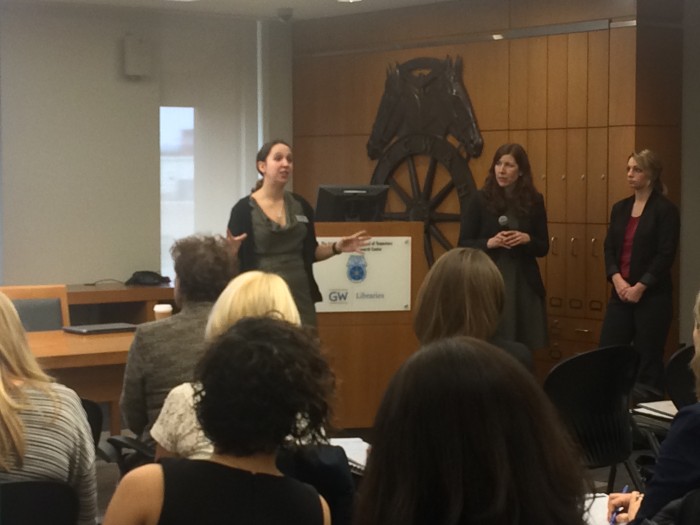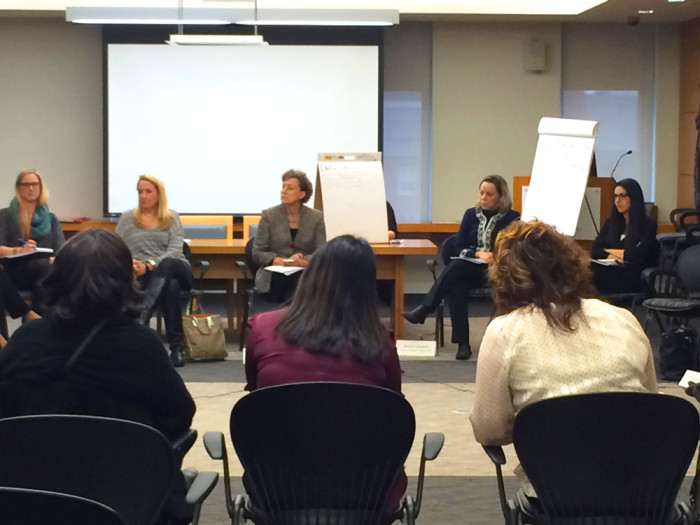Arlington, VA— On Wednesday, April 15, the Kids Are Not For Sale in Virginia Coalition held a joint press conference with Delegate Tim Hugo and Senator Mark Obenshain in Richmond to officially announce the enactment of HB 1964 and SB 1188, establishing Virginia’s first standalone sex trafficking law. Companion bills HB 1964 and SB 1188 were signed into law on March 27 by Virginia Governor Terry McAuliffe.
“I would like to thank my friend, Delegate Tim Hugo, and Senator Mark Obenshain for leading the Virginia General Assembly to unanimously adopt this vital legislation, Linda Smith, President and Founder of Shared Hope International said. “The collaboration and effort put forth by Virginia legislators, the Kids Are Not For Sale Coalition, and Virginia residents who helped advocate for this law serves as a testament to the Commonwealth’s commitment to combat child sex trafficking.”
This legislation was championed by Chief Patron Delegate Timothy Hugo (HB 1964) and Chief Patron Senator Mark Obenshain (SB 1188). Shared Hope International implemented the Kids Are Not For Sale campaign to advocate for the enactment of a strong sex trafficking law in Virginia. The Coalition consists of Virginia law enforcement, prosecutors, service providers, advocacy groups, schools, and hospitals who joined together to advocate for this landmark legislation.
This law:
- Clearly defines and establishes the offense of sex trafficking.
- Establishes penalties that reflect the seriousness of the offense.
- Specifically criminalizes child sex trafficking as a Class 3 felony without requiring prosecutors prove that force, intimidation or deception was used to cause the minor to engage in commercial sexual conduct given the way the traffickers recruit minors by preying on their vulnerability and trust.
- Assists in protecting and properly identifying sex trafficking victims.
- Closes a loophole in Virginia’s existing laws by criminalizing the recruitment of minors and adults for commercial sex—conduct which was not criminalized under Virginia law.
“I am grateful to my colleagues in the Virginia General Assembly for prioritizing the issue of child sex trafficking by voting unanimously to establish Virginia’s first sex trafficking law,” Delegate Timothy Hugo said. “This great success was made possible in large part through the efforts of Kids Are Not For Sale in VA, a Coalition implemented by Shared Hope International. The education and support the Coalition provided was instrumental in building momentum to pass the bill this year.”
According to Senator Mark Obenshain, “Human trafficking is the second fastest growing criminal enterprise in America, and sadly it is a problem here in Virginia. For law enforcement it is really represents the next front in the fight against child predators.” Obenshain continued stating, “I am proud to have been the Senate patron of legislation to finally give Virginia a stand-alone sex trafficking statute. It is a critical new tool for law enforcement to have in fighting this rapidly growing criminal enterprise. We couldn’t have done it without hard work of colleagues in the General Assembly as well as the advocacy and support of the Kids Are Not For Sale in VA Coalition.”
Media Contact
Tabatha Mansfield
Coalition Coordinator, Kids Are Not For Sale in Virginia
804-937-4001
kidsarenotforsaleinva@gmail.com
ABOUT THE KIDS ARE NOT FOR SALE IN VA COALTION: The coalition was formed to advocate for the passage and enactment of a sex trafficking statute in Virginia in 2015. Members include: Shared Hope International, Richmond Justice Initiative, Virginia Beach Justice Initiative, Regent School of Law Center for Global Justice, Anastasis International Mission, Northern Virginia Human Trafficking Initiative, Central Virginia Justice Initiative, Courtney’s House, Vessels of Mercy International, The Gray Haven, Virginia Catholic Conference, Bon Secours Virginia Health Systems, Release Me International, Virginia Trucking Association, The Family Foundation, Straight Street, Youth for Tomorrow, Children’s Advocacy Centers of Virginia, and AAUW Virginia Beach.
 Tom is now retired and started
Tom is now retired and started 







